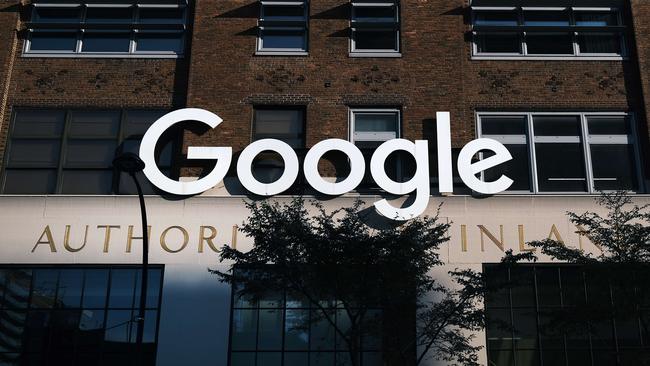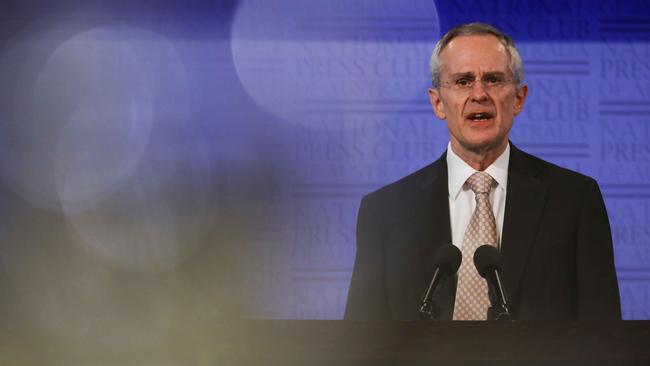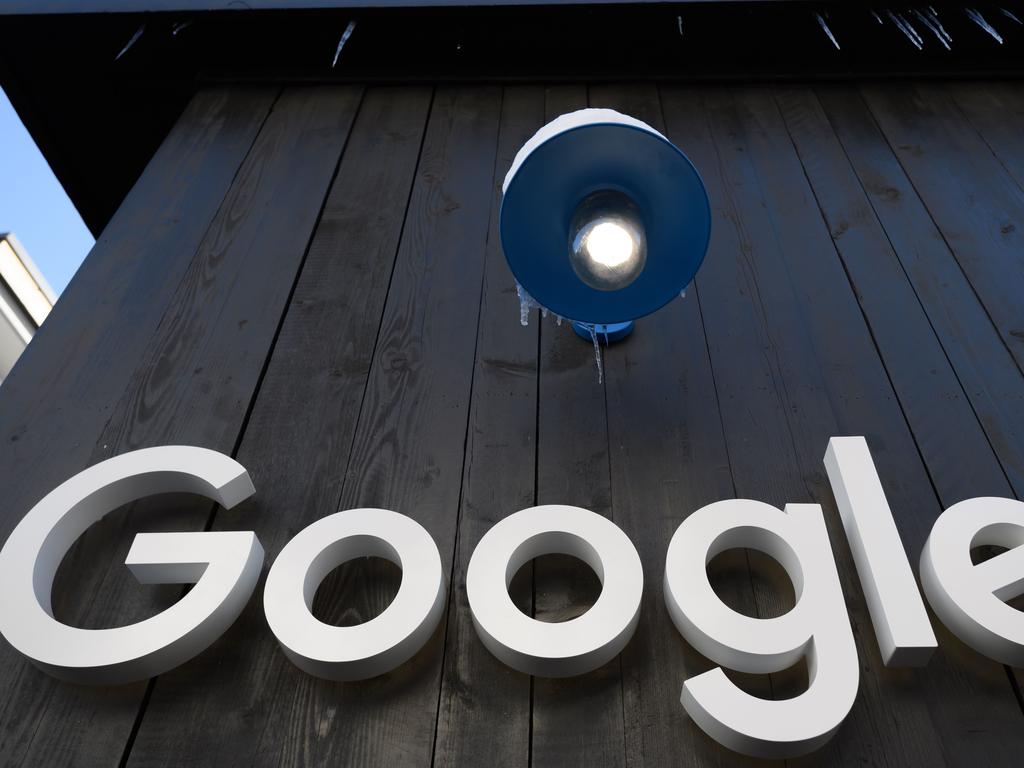
The ACCC has been a global leader in the battle against the platform giants, but the US action will now take centre stage with the focus on the extraordinary links between Google and Apple.
Google pays Apple $16bn a year to ensure its search engine is the default for its Safari internet browser and in return Apple accounts for 50 per cent of Google’s search volume.
This makes it difficult for any other search engine to compete. The payment is 15 per cent of Apple’s profit each year.
It’s a bit hard to downplay the importance of the payment when it amounts to 15 per cent of Apple’s profits.
In years past the two companies were bitter rivals, but Apple’s Tim Cook and Google’s Sundar Pichai met in 2018.
The ACCC noted the payment in its digital platforms report last year and the fact the data collected combined with its advertising technology is the basis for Google’s 80 per cent stranglehold on the digital advertising market.
Google dismissed the US Justice Department’s case as flawed but the company’s sheer size with a market value of $1.4 trillion, $171bn in cash on its books and the $18m a year it spends on Washington lobbyists, vaults the practices into the realm of alleged market abuse.
It is notable because the monopolisation case or abuse of market power goes to the crux of the problem, when to date the ACCC’s actions have been more on consumer protection alleging misleading behaviour from Google.
Wednesday’s action uses the equivalent of section 46 of the Australian competition law, which has not been widely used by the ACCC and certainly not against well-sourced operators like Google.
Both the Google and Microsoft cases alleged the companies bundled internet access and search into their operating systems, which blocks access to others.
The ACCC is in the final stages of its media bargaining code to set the terms for compensation payment by the platforms for content they use with the aim of legislation being introduced into parliament by year’s end.
Its own position is boosted by the backing of high-profile regulatory partners like the US Justice Department in a Trump administration backed by 11 states and a Democrat-led House Committee report showing bipartisan support.
This will be noted by Scott Morrison, together with similar actions by the European Commission and others, when the Prime Minister signs off on the media bargaining code later this year.
Google is the global leader in search with more than 88 per cent market penetration, which together with other tools like YouTube, its own Android mobile phones and Double Clicks, helps keep track on people’s habits without them knowing about it.
The Department of Justice said Google was “a monopoly gatekeeper for the internet”. It argued Google maintains its monopoly by exclusionary contracts with distributors like mobile phone companies. This hurts consumers by stifling innovation and choice.
Google rejected the US arguments but it remains to be seen how long it wants to fight the US government. At some point a commercial resolution will be reached that will set the rules for the rest of the world.
ACCC chief Rod Sims used Wednesday’s National Press Club speech to promote a new unfair practices law that would cover issues like a digital platform company which refused to take down details of a scam. Same goes for a big supermarket that demanded terms from a small business supplier with full details of costs and content terms, then reproduced the product as a private label competitor.
This and unfair contract terms is a big ACCC agenda item.

Payments review
ACCC chief Rod Sims used his National Press Club speech to promote the competition benefits of consumer data rights and, right on cue, Josh Frydenberg released the terms of his proposed payments system review, with King & Wood Mallesons partner Scott Farrell to lead the charge.
It was Farrell who led the implementation of the 2018 Productivity Commission report on consumer data rights that apply already in banking.
The genius in the PC report was to recognise that Google et al based their market power on control of consumer data, so the PC figured if consumers could have joint control then when the next Uber or Airbnb arrived he or she could simply transfer data to the new player.
Data control is the dominant currency in global commerce yet the real owners don’t always understand that, so through the government’s consumer data rights law they can start to appreciate the power in their own hands. Same for retail banking.
The Treasurer has drunk the cool aid on data rights and understands the links and how they can apply to the payments system.
The system governs how money is transferred and the $1bn-plus spent by the banks to get the architecture ready for the digital new payments platform (NPP) run by the RBA is one step forward and potentially to the peril of banks.
When you transfer money from your bank account to someone else’s account, you rely on a set of account numbers and in principle you don’t need to get the banks involved at all. The money could come from your Telstra phone account or Coles account, and hey bingo a new competitor enters the market.
Farrell is known as Mr Data Rights for his conversion of the PC into legislation and the stage is set to do the same in banking through the payments platform.
As noted in Wednesday’s column, this adds a new dimension to the payments debate just as the RBA sets about trying to merge the NPP with BPay and Eftpos, and Farrell’s inquiry could open the doors to the whole system.
His terms of reference specifically state that the “review will not explicitly consider specific regulatory settings that are currently in place, but will focus on the overall regulatory architecture”.
This is wrongly taken by some as meaning the big picture review will not lead to potentially groundbreaking changes.
The RBA for starters has some skin in the game given it designed the NPP with the banks, sits on the board, regulates the system and also collects a small fee on every transaction.
Eftpos for one is not necessarily in favour of a big merger and worries about the competitive effect of combining all the bank-controlled systems under one roof.
The ACCC will be the final arbiter on this score when the RBA review is completed next year.
Brakes on Bapcor pay
Amid the justifiable concerns at the complete absence of good governance at Crown, Darryl Abotomey and his comrades at car parts distributor Bapcor copped a 57 per cent vote against their remuneration report.
The board led by Andrew Harrison — in a year in which return on equity was negative 39.9 per cent and the company lost $18.4m — decided Abotomey should get 45 per cent of his maximum short-term bonus, or $593,070, to lift his cash pay for last year to $1.8m.







The outcome of the US case against Google will set the rules for the sector globally just as the 1998 case against Microsoft did, but it strengthens the Australian government’s position in dealing with the $1.4 trillion giant.